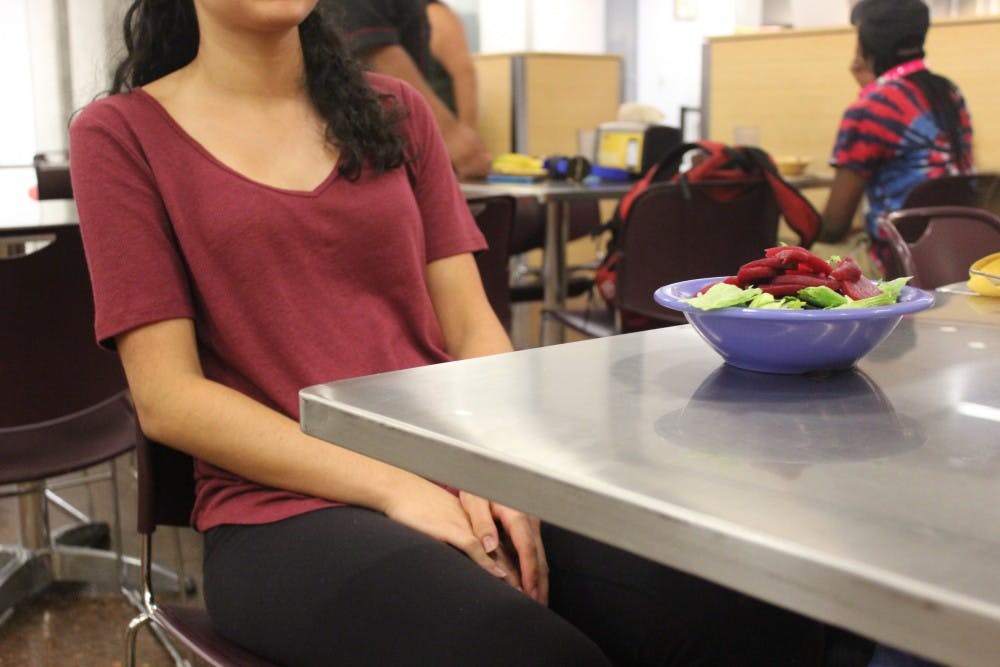With climate control and global warming as hot topics this election cycle, it's not surprising that the vegan movement is also garnering attention.
The reason many have adopted this lifestyle is because they recognize the damaging effects that animal agriculture has on our land, oceans and air quality.
In the past seven years, the number of Americans adopting the vegan lifestyle has more than doubled and high-profile celebrities like Miley Cyrus have endorsed veganism.
The plant-based lifestyle started to appeal to me after watching "Cowspiracy" and "Forks Over Knives" on Netflix. I realized the damage even one pound of beef can do to the environment.
Personally, I've cut out milk and red meat, like steak and beef, from my diet within the last year for both health and sustainability reasons.
Jared Leto
— Grim Ⓥ (@termiteking) September 3, 2016
Isn't he being nominated for sexiest vegan? Bye
Has vegan "cheat days"
Tf is a "chegan"? Die pic.twitter.com/Y7QYjfhW4B
I knew if I wanted to get to the point where I completely rid both my diet and lifestyle of animal products, it would take time and serious dedication.
Many reject veganism because they can’t imagine cutting meat and dairy and even certain hygienic products out of their lives when they use them every day.
Because of this, a gradual transition to the lifestyle is recommended by many doctors, including Doctor Oz, who suggested trying a “part-time” vegan diet so your body can adjust properly.
Some vegans disagree with this belief and have even resorted to shaming vegetarians or part-time meat-eaters aggressively for not being at the level they’re at in their diets.
Cronkite student Casey Kennedy, a long-time vegetarian who recently went vegan, said that a slow transition was a good way for her to make the switch, but that she was still judged by others in the vegan community for not making the full commitment right away.
"I wanted to slowly transition into being vegan, but people right away were like, why aren’t you full (vegan)?” Kennedy said. "If you just expect everybody to commit 100 percent to an extreme, nobody is going to do it. And if you make them feel bad about it, you’re just putting a bad title to yourself.”
Kennedy said it was ironic to be discouraging when sharing a positive message and didn't understand why vegans would shame somebody they want to join in their movement.
“I always try so hard to never make someone feel guilty," she said.
You can’t shame people into adopting a lifestyle. Persuading someone to make a change in his or her life cannot and will not be done through the use of public humiliation or disparagement.
If you appeal through the use of facts and show a little discretion if your opinion isn't immediately welcomed, society is more likely to take notice and have an open mind because they won't feel as if you're directly attacking them or their belief system.
at-home-activism to make my family listen pic.twitter.com/LTqZYq9SbZ
— mollie rose powell Ⓥ (@molliepowell01) September 12, 2016
The most important thing to remember is that most people's attachment to animal products is systemic and has been enforced since birth and acknowledging any different is a process.
A little bit of positivity goes a long way in terms of planting the seed in someone's mind. If you're feeling positive about your health and well-being, that will show.
I was never once influenced by Youtubers who filmed strangers in public and attacked their diet based on mere appearance (I'm looking at you, Freelee The Banana Girl), but I was influenced by all of the healthy, dedicated, environmentally conscious — and positive — friends, family members and coworkers I had.
Lead with positivity, and lead by example.
Reach the columnist at sphaas@asu.edu or follow @_SavannahHaas on Twitter.
Like The State Press on Facebook and follow @statepress on Twitter.
Editor’s note: The opinions presented in this column are the author’s and do not imply any endorsement from The State Press or its editors.
Want to join the conversation? Send an email to opiniondesk.statepress@gmail.com. Keep letters under 300 words and be sure to include your university affiliation. Anonymity will not be granted.




